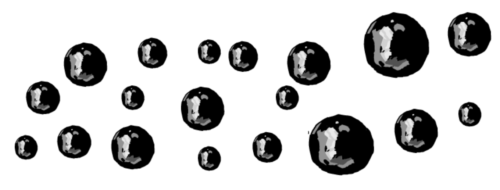Update: the store will no longer be closing in November. Its lease has been extended, but probably not for more than a few months.
By September 4, 2014, Douglas Cho had already established himself in the Boston punk music scene. Sometimes going by the nom de guerre Doug Free, he played in bands such as The Rival Mob, Free Spirit, and Give. His task at 7:10 PM that evening, however, was far less anti-establishment: to go before the Board of Zoning Appeal (BZA) for the City of Cambridge and apply for a permit to continue to operate his newly-purchased boba shop.
Alia Farah, shift supervisor at the Boston Tea Stop, said that the storefront had opened in 2003, as an outlet of a large bubble tea chain. Around 2008, the chain pulled out of Harvard Square, becoming instead a wholesale distributor of boba, syrup, and other bubble tea supplies. The store changed its name to the Boston Tea Stop (and, ironically, no longer sources its boba from that particular wholesaler). Mr. Cho was working there at the time, and, in 2014, purchased the business from its previous owner.
By this time, the Boston Tea Stop had already attracted a major local following. Mr. Cho’s attorney at the BZA meeting, James Jacobs, produced “15 letters of support, mostly from customers,” and Justin DeTore, who played in The Rival Mob alongside Mr. Cho, testified that “There’s a lot of affection between the customers and the Boston Tea Stop.” The shop’s reputation reached as far as Nicaragua: when testifier Ricky Hartman had volunteered there with the Peace Corps, he said, “several volunteers from the Boston area knew of the store immediately and recognized my shirt and that type of thing.” The permit was granted without much further trouble.
With Mr. Cho now at the helm, the Boston Tea Stop transformed into what it is today: an eclectic shrine to punk and boba, with signs painted by a local sign shop in return for, as well as payment, “vegan treats.” (The sign shop’s Instagram post even credits Cho as Doug Free.) In 2015, Cho was granted a further permit to operate arcade machines in his shop, and the band posters, album covers, high school pennants, and framed New York Times front page showing the headline “Men Walk On Moon” on the wall were joined by antique Tetris and Street Fighter II cabinets. Before COVID-19, the shop had indoor seating, but, since social distancing became the rule, these seats have been filled by figures, from Cho’s collection, of everyone from Boba Fett to Bart Simpson.
Atmosphere, however, carries a shop only so far. The Boston Tea Stop’s major strength, as it should be, is its menu. Although Farah admits that working at the shop as she does, she often gets bored of any given drink, “it’s easy to switch it up when the menu is this extensive.” Beyond the classic black, taro, or Thai milk, the shop offers over twenty infusion flavors, hot teas, and blended smoothies. “I love the Thai milk tea,” says Farah. “That’s kind of my old reliable; I always come back to it. It has a lot of caffeine, it’s a great pick-me-up and you can add flavors to it, like coconut or vanilla. I wouldn’t recommend anything too extravagant: it gets a little too sweet.”
The combination of all of this has proved a winning formula with some students. Liz Hoveland ’22, who confessed to being “a HUGE fan” and goes to the shop two to four times a month, says, “the atmosphere is really cute and wholesome, but not tacky,” and praised the wide variety of flavors and affordable prices. Sammantha Garcia ’22 says simply, “Boston Tea Stop is cute.”
The fandom extends beyond students as well. Farah says that “I have a lot of fans [of Cho] coming here, [saying] ‘oh my god, I listen to your boss’s music,’ and they look at all his stuff, take pictures, it’s really nice and heartwarming.” During the 2014 BZA meeting, Cho said that he had tourists from Hawaii, California, and Australia in one week.
Others are not so keen. Chung Yi See ’22 mentions poor customer service and says that the tea tastes “overly sugary/syrupy” and “[doesn’t] have any real tea taste.” She says that Kung Fu Tea is superior in this regard and tastes more like Singaporean bubble tea. From personal experience, I agree that milk and syrup do predominate in the taste. Not all their menu options are as good as the others: Alex Grayson ’22 did not recommend the drink which she described as “a smoothie with boba.” A love for Boston Tea is certainly not universal.
In the end, the business’s fans have not been enough to keep it open. Harvard Square’s rising commercial rents are now a well-discussed problem, and Kung Fu Tea markets more aggressively to students than the Boston Tea Stop ever has. The pandemic also hit the business hard. “A lot of our regulars moved away after COVID-19; we don’t really see a lot come back,” Farah says. More than that, though, “times have changed, [business has] gotten way slower, it’s definitely not as interesting as it used to be.” After almost twenty years in business in one form or another, the Boston Tea Stop is getting old, and management is thinking about moving on. The store will close in November, and while Farah says there are potential plans in the works to change location, she is unsure if these will come to anything.
The passing of the Boston Tea Stop does not mean there is nowhere to get boba in Harvard Square. It does, however, mark the end of one of the more unique places to get it. Go while you can. My drink order is a black milk tea, extra bubbles.
Michael Kielstra ’22 (pmkielstra@college.harvard.edu) discovered boba in college and has never looked back.

